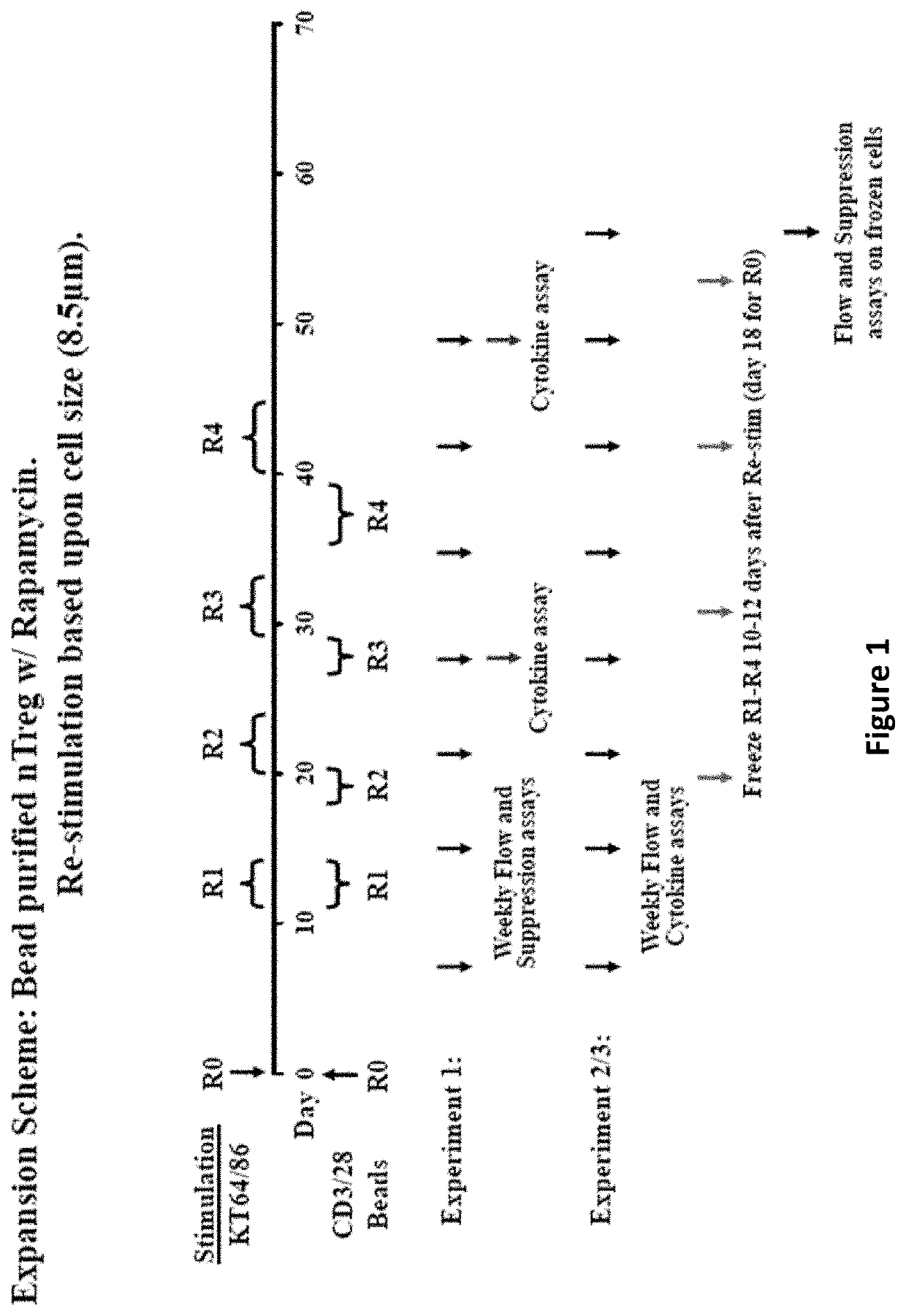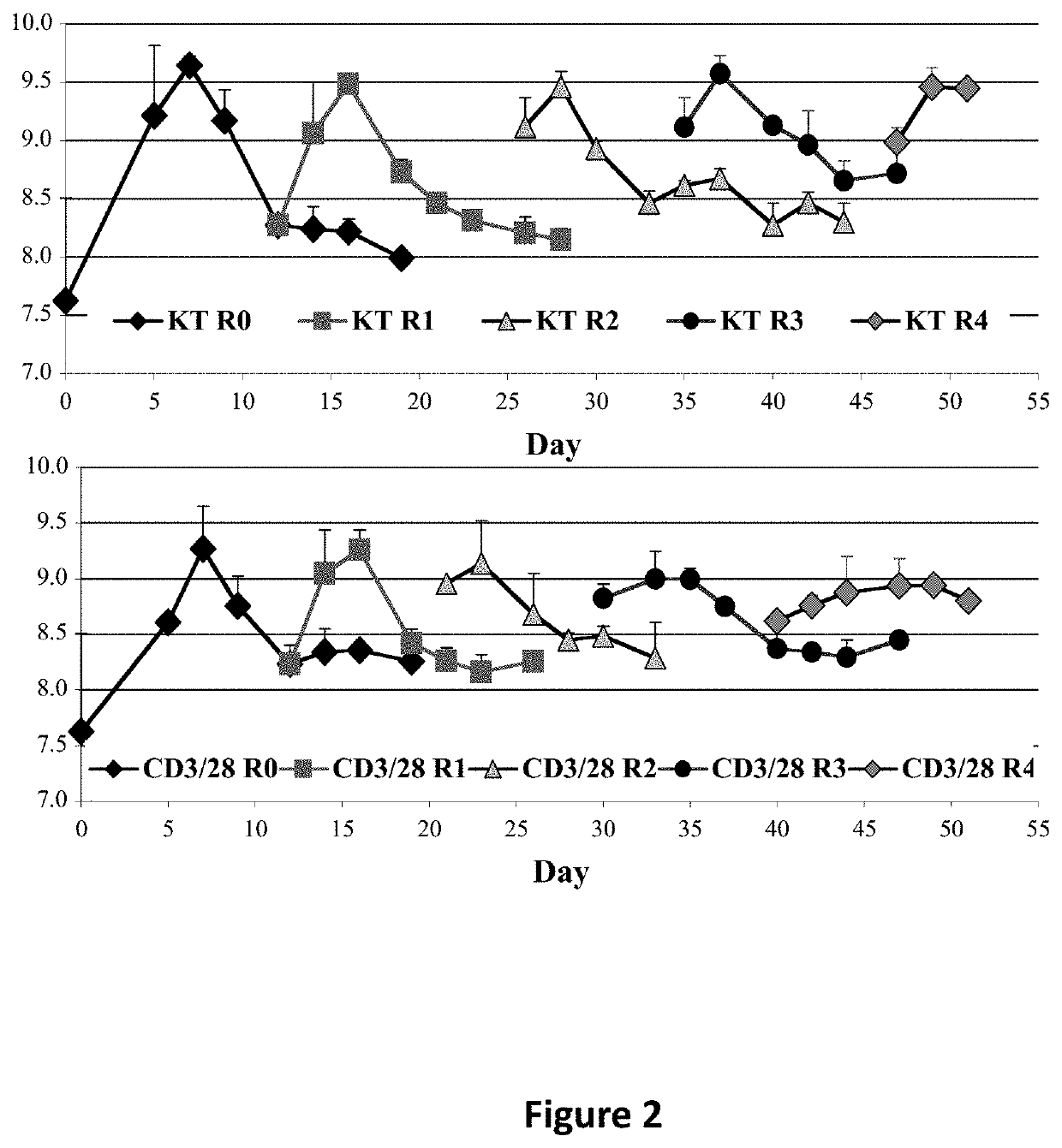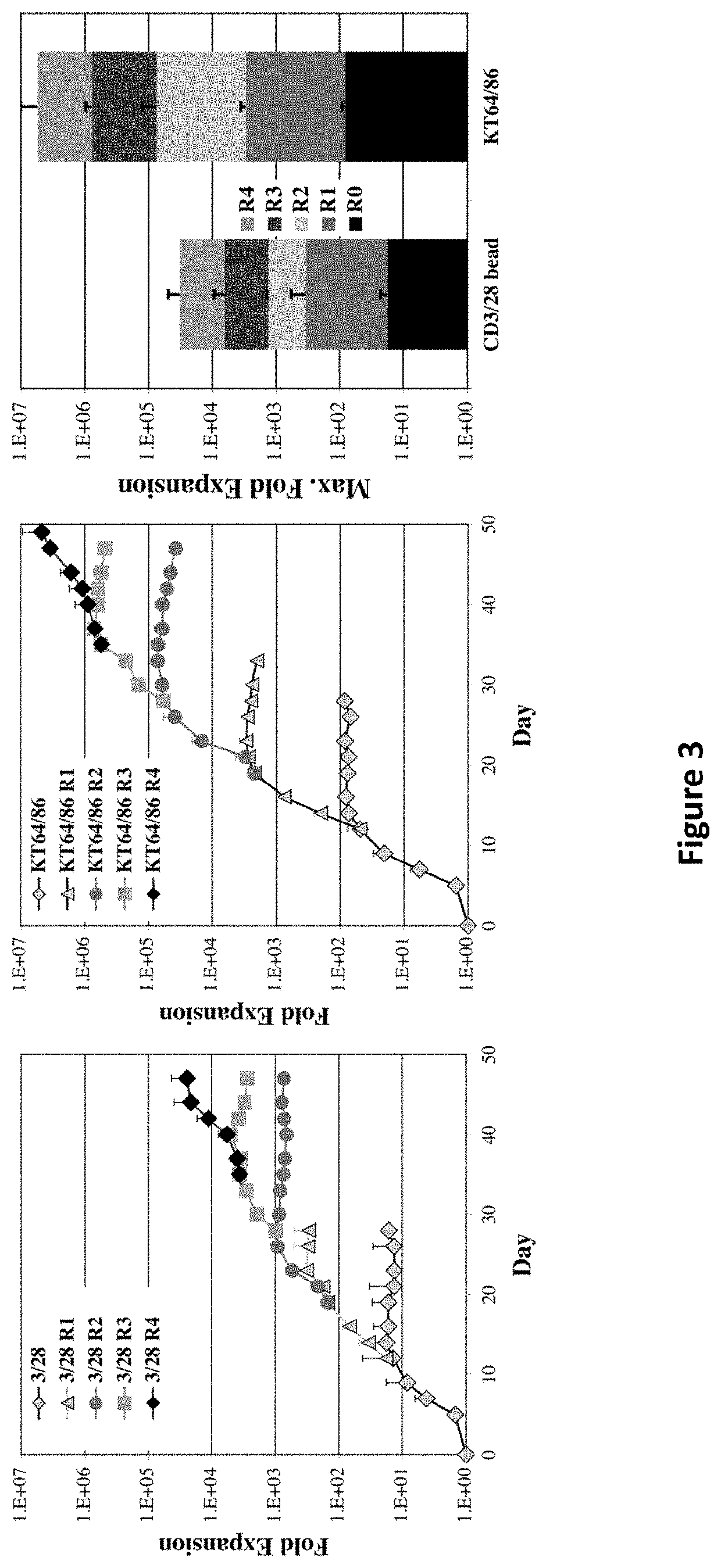Methods to Expand a T Regulatory Cell Master Cell Bank
a cell bank and regulatory cell technology, applied in the field of methods to expand a t regulatory cell master cell bank, can solve the problems of significantly interfering with advances in human treg cell research, the degree of expansion was less than desired, etc., and achieve the effect of reducing the rate of ntreg proliferation
- Summary
- Abstract
- Description
- Claims
- Application Information
AI Technical Summary
Benefits of technology
Problems solved by technology
Method used
Image
Examples
example 1
of Umbilical Tregs
[0169]Naturally occurring CD25+CD4+ suppressor cells (Tregs) cells play an active part in establishing and maintaining immunological unresponsiveness to self constituents (i.e., immunological self tolerance) and negative control of various immune responses to non-self antigens. There are a paucity of reliable markers for defining Tregs, but naturally occurring CD25+CD4+ Tregs are the most widely studied because accumulating evidence indicates that this population plays a crucial role in the maintenance of immunological self tolerance and negative control of pathological as well as physiological immune responses. Their natural presence in the immune system as a phenotypically distinct population makes them a good target for designing ways to treat or prevent immunological diseases and to control pathological as well as physiological immune responses. However, little, if any methods exist to expand and manipulate this population of cells.
[0170]Tregs have the potentia...
example 2
of Adult Peripheral Blood Using Rapamycin
[0173]Peripheral blood mononuclear cells (PBMC) were isolated from buffy coat preparations, which were derived from the whole blood of normal healthy volunteer donors (Memorial Blood Centers, Minneapolis, Minn.). Leukocyte rich buffy coat cells were centrifuged over Ficoll-Hypaque layers to collect PBMC. CD25+ cells were isolated using the following indirect antibody based microbeads. PBMC were stained with anti-CD25-FITC, washed and then bound secondarily to anti-FITC multi-sort microbeads (5 microliters / 107 cells, Miltenyi Biotec, Auburn, Calif.) and positively selected. The CD25+ cells were reapplied to a second column, washed and re-eluted. After column purification, the anti-FITC multisort beads were detached. The CD25+ cells were further depleted of CD8, CD14, CD19, CD20, and CD56 expressing cells with a cocktail of mAb-coated microbeads for lineage depletion Godfrey, et al. (2004, Blood 104: 453-461). These CD25+ lineage depleted cells...
example 3
x Vivo Expansion of Human Natural Regulatory T Cells (nTregs) with Minimal Loss of In Vivo Functional Activity
[0176]Graft-versus-host disease (GVHD) is a frequent and severe complication following hematopoietic cell transplantation. Natural CD4+25+ regulatory T-cells (nTregs) have proven highly effective in preventing autoimmunity and graft-versus-host disease (GVHD) and autoimmunity in murine models. Clinical application of nTreg has been severely hampered by their low frequency and unfavorable ex vivo expansion properties. Previously, it was demonstrated that umbilical cord blood (UCB) nTreg could be purified and expanded in vitro using GMP reagents. Recently, the first phase I clinical trial testing the safety of expanded nTreg and their capacity to suppress GVHD following UCB transplantation was completed. Since the initial number of nTreg in UCB units is limited, and average yield after expansion was only 1×109 nTreg, experiments were designed to explore whether yield could be ...
PUM
| Property | Measurement | Unit |
|---|---|---|
| size | aaaaa | aaaaa |
| mean diameter | aaaaa | aaaaa |
| diameter | aaaaa | aaaaa |
Abstract
Description
Claims
Application Information
 Login to View More
Login to View More - R&D
- Intellectual Property
- Life Sciences
- Materials
- Tech Scout
- Unparalleled Data Quality
- Higher Quality Content
- 60% Fewer Hallucinations
Browse by: Latest US Patents, China's latest patents, Technical Efficacy Thesaurus, Application Domain, Technology Topic, Popular Technical Reports.
© 2025 PatSnap. All rights reserved.Legal|Privacy policy|Modern Slavery Act Transparency Statement|Sitemap|About US| Contact US: help@patsnap.com



